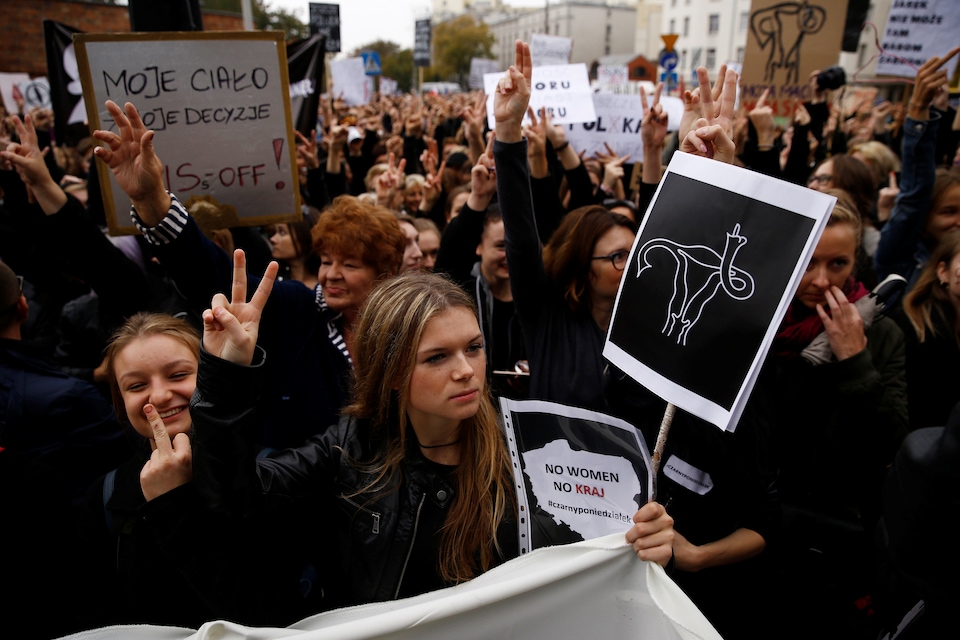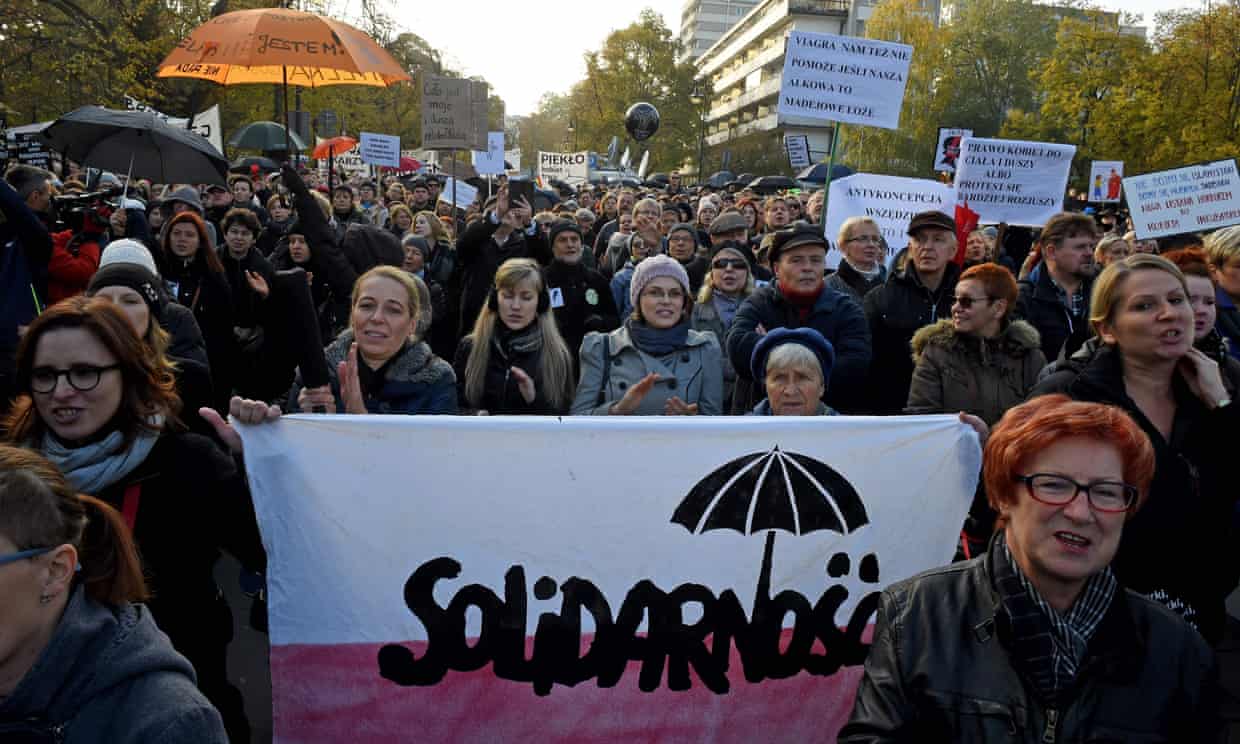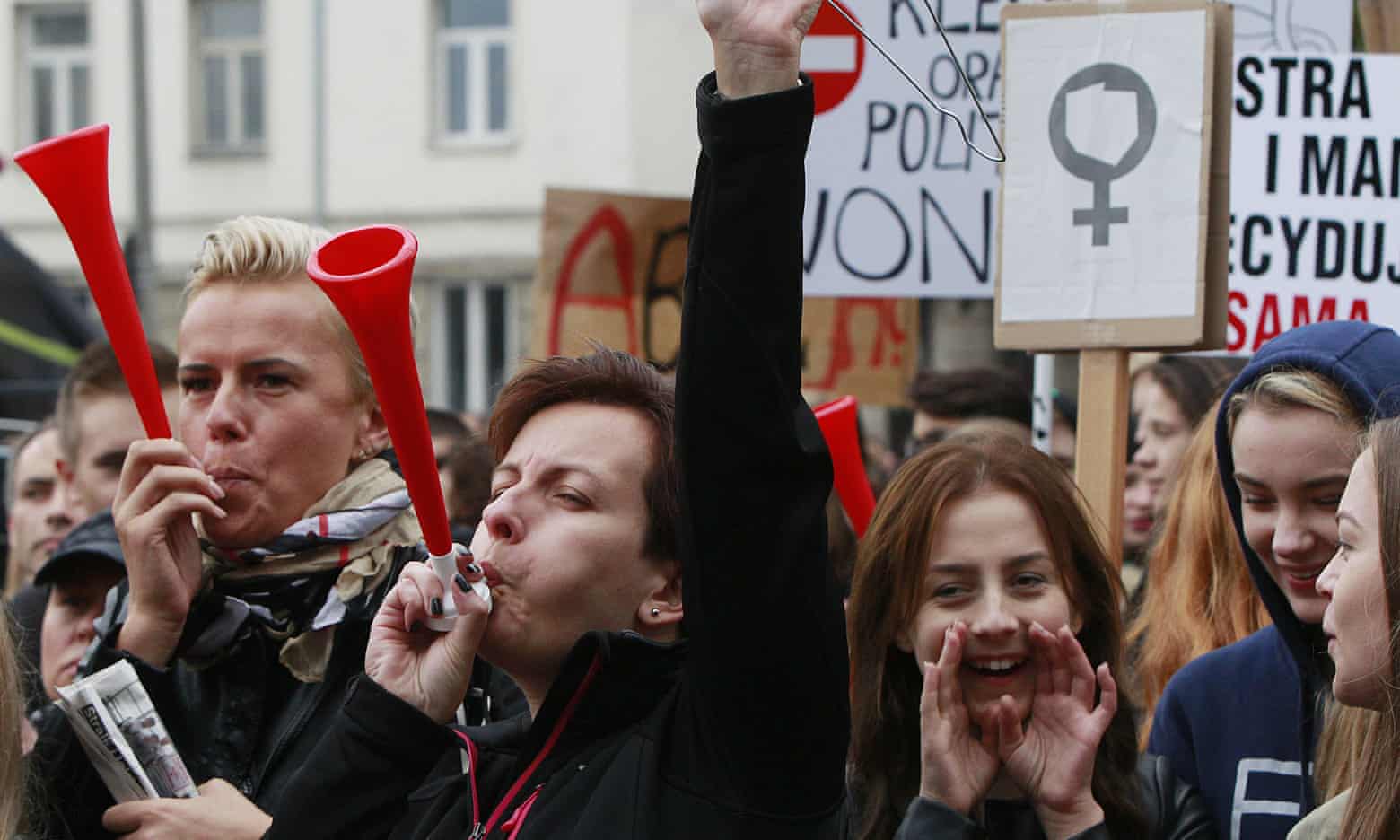
“Police violence against protestors” sounds like yet another headline we would see featured in the daily New York Timesor Washington Post. Instead, it references a place about a six hour flight east of the United States eastern seaboard; Poland. On October 22nd, 2020, the Constitutional Tribunal in Poland approved a “near-total ban on legal abortion”. Fast forward to May 2023 we see the detrimental effects that come with the criminalization of abortion, the criminalization of women’s rights in Poland. Since the tribunal decision, the female incarceration population increased from 4.4% (of the prison population) in 2020 to 10.9% (of the prison population) in 2023.
Criminalizing women and restricting their rights to protect their bodies did not result in the elimination of abortions nor did it result in a decrease in support for abortion. Instead, it resulted in more women being incarcerated, more women seeking unsafe abortions, more women dying, all while the state looked towards the prison industrial complex as an opportunity for profit. An increase in incarceration rates gives the state the fuel they need to create more prisons to hold more beds and more individuals, essentially creating a surplus. As happened in the United States, the carceral explosion in Poland responded to four main surpluses: state capacity, labor, land, finance capacity. Building prisons was a political, economic solution to these crises.
Women in Poland being criminalized for their rights, for protesting their rights, or for acting upon their needs for abortion and health purposes, have become the surplus in the prison population and are seen as dollar signs to make profit from. By banning abortions, women are either forced to have the baby or they are forced to seek outside help. Both options come at a cost: the cost of sacrificing one’s needs, health, income, and even freedom all by criminalizing the female anatomy and implementing thousands of roadblocks, as if Polish women didn’t already have to go through enough. Prisons have been and will continue to be opportunistic for any country to take advantage of as the argument is always to contain the body of those deemed a danger to society in any capacity. There is no surplus of crime, there is no surplus in criminals or dangerous people, but there IS a surplus in power hungry governments that see women taking control of their bodies and deeming them as a threat. Women’s bodies are always wanting to be controlled, whether it’s abortion rights or rights to autonomy or basic human rights, there is always a type of control over women’s bodies by forcing them to conform to man made decisions.
These concepts are globalized, for every stride forward women take towards achieving equality, there is one stride backwards. When Roe v. Wade was a major stride in women taking control of their bodily autonomy. When Roe v. Wadewas overturned, some thought women would give up all resistance to governmental control. The opposite occurred, women across the United States joined together to rally, peacefully protesting, and ‘rebelling’ against the control of the government. In Poland women have done the same since the October 22nd, 2020 decision banning abortion as the supposed Tribunal deemed that women should not be able to control their bodies because then the government would not be able to commodify them. Are women who take control of their bodies and their rights, while fighting against the government, considered dangers to society or dangers to the government’s money?
If the government wants control, if they want money, if they want to uphold the patriarchy by taking away women’s bodily autonomy, if they want to keep the prison industrial complex alive and maintain the surplus, they will need to try harder because nie poddajemy się i nigdy się nie poddamy! We have not given up and will never give up!
(By Nicole Nowak)
(Photo Credit: Washington Post / Reuters / Kacper Pempel)





